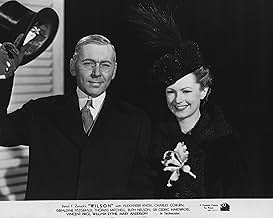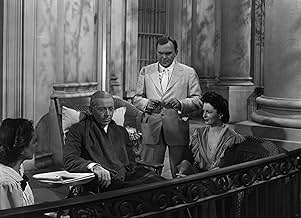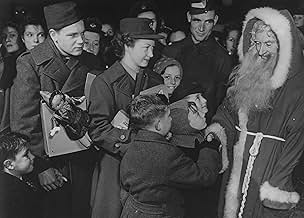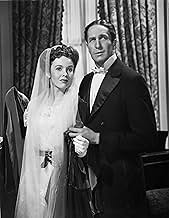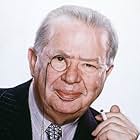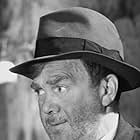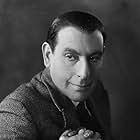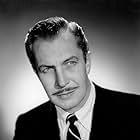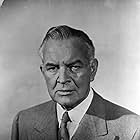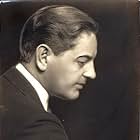IMDb RATING
6.3/10
1.7K
YOUR RATING
A chronicle of the political career of US President Woodrow Wilson.A chronicle of the political career of US President Woodrow Wilson.A chronicle of the political career of US President Woodrow Wilson.
- Won 5 Oscars
- 7 wins & 7 nominations total
Cedric Hardwicke
- Senator Henry Cabot Lodge
- (as Sir Cedric Hardwicke)
- Director
- Writer
- All cast & crew
- Production, box office & more at IMDbPro
Storyline
Did you know
- TriviaFranklin D. Roosevelt screened the film at the Second Quebec Conference in 1944. Among those watching were Winston Churchill who was decidedly unimpressed and left early to go to bed. For his part, Roosevelt, upon seeing the part with Wilson suffering a stroke while advocating for the League of Nations, remarked, "by God, that's not going to happen to me!"
- GoofsAs the Wilsons tour the White House on their first day, they stop to admire the official portrait of President Taft. As Taft had left office only that day, no official portrait of him would as yet have been painted or hung.
- Quotes
Professor Henry Holmes: Now I know why the Democratic Party chose a jackass for a mascot.
- ConnectionsFeatured in History Brought to Life (1950)
Featured review
Let us be certain of one thing: Thomas Woodrow Wilson (1856 - 1924), Academician, Historian, Orator, President of Princeton University, Governor of New Jersey, and 28th President of the United States is a very important political figure in American History. He is usually credited to be one of the top ten great Presidents of our history, but these lists of historians are prone to change when new research shows previous ideas were wrong or too hagiographic towards the former President. In Wilson's case historians of his period are confronted with the problem that he had a great contemporary rival, the 26th President Colonel Theodore Roosevelt. Both men at their best were terrific figures, who accomplished a great deal of positive social legislation (they and Robert LaFollette dominate this period: the Progressive Era), and both (with Roosevelt's predecessor William McKinley) made America a great power. But T.R. and W.W. were both great egotists, and had defects in personality and views that make their achievements questionable. T.R. loved the strenuous life, but he also loved war too much - to the point that his youngest son got sacrificed in France in the First World War. Wilson helped get the Clayton Anti-Trust Act and the Federal Reserve set up, but he was a Southerner who backed Jim Crow Laws. He did try to keep America out of World War I (as a boy he lived in Virginia and South Carolina during the Civil War, and saw Columbia, South Carolina destroyed - probably by Sherman's men). But he was willing to use our troops to "straighten out" Latin American countries: Mexico (twice), Haiti, the Dominican Republic. His creation of the first international peace organization, the League of Nations, was great, but flawed due to the U.S. not becoming a member - a flaw that Wilson's egotistic fight with Senator Henry Cabot Lodge over accepting the Treaty of Versailles guaranteed.
This film was made in 1944 by Zanuck, a Democrat. It emphasized Wilson as the far-sighted peace seeker, the forerunner of FDR (who was planning the United Nations). FDR actually was in Wilson's administration (he was Assistant Secretary of the Navy, like his cousin TR had been in 1897 under McKinley). The audience of the time would have been aware of this. As most of the audience would be white, Protestant, and of anglo-saxon background, it would be assumed that the film would be well received. Actually it wasn't. In the midwest, with the heavy connections to Germany or Middle-Europe, and in Irish-American centers (Wilson was cool towards Irish nationalism)the audiences recalled the unpleasant intransigence and pig-headedness of the President. Zanuck had the film opened in his home town in Nebraska, only to find that few were interested in the premier of the film - they told him they had not liked Wilson while he was in office.
As it is the film is excellent in terms of production and cast, starting with Alexander Knox as the President. His is a great performance, which merited his Oscar nomination. But the film is only positive about Wilson (and correspondingly unfair to Lodge, who may have had doubts about the Treaty of Versailles, but was not conspiring to destroy Wilson - he only had to let Wilson do himself in!). As for the racist side of Wilson, to get a glimpse of it see THE GREAT WHITE HOPE, where the Wilson administration is determined to drive the black heavyweight champion (based on Jack Johnson, and played by James Earl Jones) out of the title he deserves to keep.
This film was made in 1944 by Zanuck, a Democrat. It emphasized Wilson as the far-sighted peace seeker, the forerunner of FDR (who was planning the United Nations). FDR actually was in Wilson's administration (he was Assistant Secretary of the Navy, like his cousin TR had been in 1897 under McKinley). The audience of the time would have been aware of this. As most of the audience would be white, Protestant, and of anglo-saxon background, it would be assumed that the film would be well received. Actually it wasn't. In the midwest, with the heavy connections to Germany or Middle-Europe, and in Irish-American centers (Wilson was cool towards Irish nationalism)the audiences recalled the unpleasant intransigence and pig-headedness of the President. Zanuck had the film opened in his home town in Nebraska, only to find that few were interested in the premier of the film - they told him they had not liked Wilson while he was in office.
As it is the film is excellent in terms of production and cast, starting with Alexander Knox as the President. His is a great performance, which merited his Oscar nomination. But the film is only positive about Wilson (and correspondingly unfair to Lodge, who may have had doubts about the Treaty of Versailles, but was not conspiring to destroy Wilson - he only had to let Wilson do himself in!). As for the racist side of Wilson, to get a glimpse of it see THE GREAT WHITE HOPE, where the Wilson administration is determined to drive the black heavyweight champion (based on Jack Johnson, and played by James Earl Jones) out of the title he deserves to keep.
- theowinthrop
- Apr 11, 2004
- Permalink
- How long is Wilson?Powered by Alexa
Details
Box office
- Budget
- $4,000,000 (estimated)
- Runtime2 hours 34 minutes
- Color
- Aspect ratio
- 1.37 : 1
Contribute to this page
Suggest an edit or add missing content


